#innovation hubs in Kenya
Explore tagged Tumblr posts
Text
Kenya’s Leads Africa as a Hub for AgriTech and Food Startups in Africa
Kenya is emerging as a leader in sourcing capital for its agricultural technology and food startups across the African continent. A large portion of capital for African startups still comes from foreign countries, with approximately 60 per cent, coming from international sources, primarily the United States and the United Kingdom. On the continent, however, most investors are concentrated in…
#African food security#agri-tech ecosystem#agricultural investment Africa#agricultural modernization#Agricultural technology#AI in agriculture#climate tech funding#digital infrastructure in Kenya#food startups in Africa#green bond market#iHub Nairobi#impact investing in Africa#innovation hubs in Kenya#Kenya Agriculture#Kenya agritech#Nairobi Garage#precision agriculture#solar energy solutions#sustainable agriculture#venture capital in Kenya#venture debt
0 notes
Link
2 notes
·
View notes
Text
JKIA Named Africa's Top Cargo Airport in Global Awards
Nairobi's Jomo Kenyatta International Airport (JKIA) has clinched the title of African Cargo Airport of the Year at the prestigious STAT Times International Awards for Excellence in Air Cargo. This recognition underscores the airport's pivotal role in facilitating trade and logistics across the continent.
The Kenya Airports Authority (KAA) hailed the achievement, calling it a landmark moment for Kenya’s largest airport. The award reflects JKIA’s commitment to operational efficiency, innovation, and continuous improvement in cargo handling.

Cargo Hub for Africa JKIA remains a vital hub for air cargo in Africa, handling 112,000 tonnes of cargo in the first quarter of 2024 alone. In 2023, the airport processed 372,249 tonnes, solidifying its status as a leading cargo gateway.
Cargo operations also play a significant role in Kenya's economy. In 2023, Kenya Airways (KQ) earned Ksh12.46 billion from cargo services, representing 7% of its total revenue of Ksh178 billion.
Beating Regional Giants JKIA outperformed major African competitors, including Cairo International Airport (Egypt) and O.R. Tambo International Airport (South Africa), further cementing its regional dominance. However, on the global stage, JKIA’s cargo volumes remain modest compared to airports like Hong Kong International, which led globally in 2023 by handling over 4.3 million metric tonnes.
Adding to a Growing List of Accolades This latest win adds to JKIA’s expanding collection of awards. In October 2024, the airport was crowned Africa’s Leading Airport at the World Travel Awards, triumphing over top contenders like Cape Town International, Casablanca Mohammed V, Julius Nyerere, and Kigali International Airports.
Kenya's Aviation Sector on the Rise Kenya’s aviation sector continues to shine globally. Alongside JKIA’s triumph, Kenya secured several other prestigious accolades in 2024, including:
Africa’s Leading Airline: Kenya Airways Africa’s Leading Airline – Business Class: Kenya Airways Africa’s Leading Airline Brand: Kenya Airways Africa’s Leading Business Travel Destination: Nairobi City
While Tanzania was recognized as Africa’s Leading Destination, JKIA’s latest victory reinforces Kenya’s position as a regional leader in trade, travel, and logistics.
1 note
·
View note
Text
Africa: A Continent of Beauty, Culture, and Endless Potential
Africa is more than just a place—it’s a story of resilience, culture, and innovation. With 54 countries, over 1.4 billion people, and thousands of languages, Africa is a land of diversity, creativity, and opportunity. Whether you think of its breathtaking landscapes, rich traditions, or booming tech industry, Africa is a continent on the rise.
1. The Culture: Deep Roots & Vibrant Traditions
Africa’s culture is alive in its music, fashion, art, and storytelling. From the rhythmic beats of Afrobeats and Amapiano to the colorful fabrics of Ankara and Kente, African creativity is shaping global trends.
• Music stars like Burna Boy, Wizkid, and Tems are dominating international charts.
• African filmmakers are breaking barriers with Nollywood (Nigeria) and Wakaliwood (Uganda) gaining worldwide recognition.
• Art from African painters, sculptors, and designers is selling for millions in galleries across Europe and the U.S.
Even though Africa embraces modernity, traditions remain strong. Festivals like Ghana’s Chale Wote, Nigeria’s Ojude Oba, and South Africa’s Zulu Reed Dance celebrate the continent’s deep cultural roots.
2. The Land: A Paradise of Natural Wonders
Africa is home to some of the most beautiful places on Earth:
• The Serengeti in Tanzania, where the Great Migration happens.
• Victoria Falls in Zambia/Zimbabwe, one of the world’s largest waterfalls.
• The Sahara Desert, the largest hot desert in the world.
• Madagascar, home to unique wildlife found nowhere else.
From safaris in Kenya to gorilla trekking in Rwanda, Africa’s biodiversity is breathtaking. If you love adventure, this is the place to explore.
3. The Future: Innovation & Growth
Africa is not just about history—it’s about the future. Tech startups in Nigeria, Kenya, and South Africa are creating digital solutions for banking, health, and business. M-Pesa, a mobile money service from Kenya, has changed the way people handle transactions.
Did you know? Africa has one of the fastest-growing youth populations in the world. That means new ideas, new businesses, and new opportunities. Cities like Lagos, Nairobi, Kigali, and Cape Town are becoming global tech hubs.
4. The People: Resilient & Inspiring
One thing that makes Africa special? Its people. Despite challenges like poverty and climate change, Africans continue to innovate, create, and push forward. From activists fighting for change to entrepreneurs building businesses, the spirit of Africa is one of strength.
Conclusion: Africa Is the Future
Whether it’s culture, nature, or innovation, Africa has something for everyone. If you haven’t experienced Africa yet, you’re missing out on one of the most exciting places on Earth. This is the time to watch, learn from, and celebrate Africa!
This article is designed to be engaging, shareable, and perfect for Tumblr’s audience, which loves culture, aesthetics, and social conversations. You can pair it with stunning images or GIFs of African landscapes, music, and fashion to make it even more eye-catching.
#afrikan beauty#explore#afro#african fashion#technology#forestcore#travel#100 days of productivity#yellowjackets#70s#60s
2 notes
·
View notes
Text
PRE-QUALIFICATION OF SUPPLIERS FOR GOODS AND SERVICES - MT.KENYA HUB
MT.KENYA HUB TENDER FEBRUARY 2024 PRE-QUALIFICATION OF SUPPLIERS FOR GOODS AND SERVICES Mount Kenya Innovations Community Hub is a registered non-profit organization that has over the last eight years engaged in environmental, social & economic transformation projects in Kenya and beyond. Mt. Kenya Hub seeks to invite interested and eligible organizations to submit applications for the…
0 notes
Text
Beyond Silicon Valley: New Global Hotspots for Entrepreneurs and Innovation
For decades, Silicon Valley has been synonymous with innovation, entrepreneurship, and technological breakthroughs. The region’s unique blend of venture capital, top-tier talent, and a risk-taking culture has made it the gold standard for startups. However, the world of entrepreneurship is evolving, and new startup ecosystems are emerging across the globe. Entrepreneurs are no longer confined to Silicon Valley to build the next big thing. Cities from Asia to Africa, Latin America to Europe, are rapidly positioning themselves as thriving hubs for innovation.
According to Gaurav Mohindra, a global business strategist and entrepreneur, “The startup revolution is no longer confined to one location. Entrepreneurs today have access to technology, talent, and funding across the globe, making it easier than ever to build a successful company outside of Silicon Valley.”
In this article, we explore some of the rising global hotspots for entrepreneurship, the factors driving their growth, and what founders should know before setting up in these new innovation hubs.

________________________________________
1. Singapore: Asia’s Gateway to Innovation
Singapore has emerged as a leading hub for startups in Asia. With its strong infrastructure, business-friendly regulations, and government-backed startup initiatives, the city-state is attracting global entrepreneurs and investors alike. The government has introduced various incentives, including tax breaks and grants, to support early-stage startups.
The country’s strategic location also makes it a gateway to the broader Southeast Asian market, a region with over 600 million consumers. Fintech, biotech, and deep-tech startups have particularly flourished in Singapore due to strong regulatory support and access to a highly skilled workforce.
Gaurav Mohindra emphasizes the importance of location in building a business: “Singapore’s connectivity to the global market makes it an ideal place for startups looking to scale internationally. With strong legal protections and government support, founders have the right ecosystem to thrive.”
________________________________________
2. Berlin: Europe’s Affordable Innovation Hub
While London has long been Europe’s financial capital, Berlin is increasingly becoming a leading startup destination. Known for its affordability compared to other major European cities, Berlin attracts entrepreneurs from around the world. The city has a vibrant tech scene, with strong government backing and a culture of innovation.
Berlin’s startup ecosystem is particularly strong in sectors like fintech, e-commerce, and artificial intelligence. Additionally, the city’s diversity and openness to international talent make it a magnet for entrepreneurs looking to set up in Europe.
According to Gaurav Mohindra, “Berlin offers an incredible mix of creativity, affordability, and access to European markets. It’s a city where startups can experiment and innovate without the high costs associated with traditional financial hubs.”
________________________________________
3. Nairobi: Africa’s Silicon Savannah
Nairobi, the capital of Kenya, has been dubbed the “Silicon Savannah” due to its rapidly growing tech ecosystem. With a young and tech-savvy population, improving internet infrastructure, and rising investor interest, Nairobi is at the forefront of Africa’s digital transformation.
Startups in fintech, agritech, and healthtech are thriving in the city, solving real-world problems with technology. Mobile money platform M-Pesa, one of the most successful fintech innovations globally, originated in Kenya and has set the stage for a wave of new startups.
Gaurav Mohindra highlights Africa’s rising potential: “Nairobi represents the future of innovation in emerging markets. Entrepreneurs here are solving critical challenges with scalable technology solutions, making a real impact on society.”
________________________________________
4. São Paulo: Latin America’s Entrepreneurial Powerhouse
Brazil’s economic hub, São Paulo, is leading Latin America’s startup scene. With a growing middle class, increasing internet penetration, and government-backed startup incentives, the city is home to a burgeoning entrepreneurial ecosystem.
Fintech and e-commerce startups have seen massive growth, driven by Brazil’s digital transformation and the rise of mobile-first consumers. The city has also become a favorite among venture capitalists looking to invest in Latin America.
“Latin America is undergoing a digital revolution, and São Paulo is at its center,” says Gaurav Mohindra. “With a rapidly growing consumer base and increasing investor interest, the region presents a golden opportunity for startups looking to expand.”
________________________________________
5. Dubai: The Middle East’s Innovation Hub
Dubai has been aggressively positioning itself as a leading startup hub in the Middle East. With its strategic location, tax-friendly policies, and world-class infrastructure, the city is attracting entrepreneurs from around the world.
Sectors like logistics, e-commerce, and fintech are thriving, thanks to Dubai’s status as a global business hub. Government initiatives such as the Dubai Future Foundation and various startup accelerators are also helping to nurture early-stage ventures.
Gaurav Mohindra notes, “Dubai is more than just a business-friendly city; it’s a global innovation hub. With its forward-thinking policies and support for entrepreneurs, it provides an ideal environment for startups to scale quickly.”
________________________________________
Key Takeaways for Entrepreneurs
The world of entrepreneurship is expanding far beyond Silicon Valley. As new innovation hubs rise, founders now have more choices when deciding where to start and scale their ventures. While each city offers unique advantages, several common factors contribute to their success:
• Government Support: Cities like Singapore, Dubai, and Nairobi provide strong policy backing and funding initiatives.
• Access to Talent: Innovation hubs attract skilled professionals, making it easier for startups to find the right team.
• Investor Interest: Venture capital is increasingly flowing into emerging markets, fueling growth and expansion.
• Market Potential: Growing consumer bases and digital adoption in regions like Latin America and Africa create new opportunities.
For aspiring entrepreneurs, the message is clear: you don’t need to be in Silicon Valley to succeed. With the right ecosystem, funding, and vision, the next big startup can emerge from anywhere in the world.
As Gaurav Mohindra puts it, “The next wave of innovation will come from diverse markets across the globe. Entrepreneurs should look beyond traditional hubs and seize the opportunities emerging in new startup ecosystems.”
Whether you’re launching a fintech startup in Nairobi, an e-commerce platform in São Paulo, or a logistics venture in Dubai, the world is your playground. The future of entrepreneurship is truly global.
Originally Posted: https://vocal.media/journal/beyond-silicon-valley-new-global-hotspots-for-entrepreneurs-and-innovation
0 notes
Text
TwentyFirst is the go-to East African Real Estate Portal, designed to simplify property transactions across Kenya, Uganda, Tanzania, and beyond. With a rapidly growing real estate market, finding the right property can be overwhelming—but our platform makes it effortless. Whether you're searching for a dream home, commercial investment, or prime land, we provide a seamless, technology-driven experience. Our verified listings ensure authenticity, while our advanced search filters help users find properties based on location, price, and amenities. By partnering with trusted real estate agents, developers, and private sellers, we bring transparency and efficiency to the property search process. More than just a listing site, TwentyFirst is a hub for real estate knowledge, offering market insights, investment guides, and expert advice. Whether you are a first-time buyer, an investor, or a seller looking for the right audience, our platform provides the tools and resources you need to make informed decisions. We understand the complexities of the East African property market and are committed to bridging the gap between buyers and sellers through an intuitive, secure, and user-friendly experience. With urbanization and infrastructure development on the rise, now is the perfect time to invest in East Africa’s thriving real estate sector. At TwentyFirst, we’re redefining real estate transactions with innovation, trust, and expertise. Explore a smarter way to buy and sell property today with East Africa’s most trusted real estate portal.
#EastAfricaRealEstate#BuyPropertyEA#InvestInAfrica#DreamHomeEA#LuxuryLiving#UgandaHomes#TanzaniaProperties#RealEstateInvesting#PropertyForSale
0 notes
Text
Artificial intelligence: Leveling the playing field for African Talent
The COVID-19 pandemic irrevocably transformed the global labor market, exposing vulnerabilities in traditional work structures and accelerating digital transformation across industries. For Africa, a continent historically characterized by high unemployment rates and limited access to quality education, the post-pandemic landscape has revealed unprecedented opportunities, particularly in technology. Artificial intelligence (AI) is at the heart of this transformation, serving as a powerful equalizer reshaping the global perception of African talent.
Over the past decade, Africa has witnessed a surge in technological adoption, with mobile connectivity and internet penetration rates rising steadily. However, it wasn’t until the pandemic forced businesses to adopt remote work models that African talent gained significant global recognition. Organizations worldwide, driven by the need to optimize costs and access a broader talent pool, have increasingly turned to Africa for tech solutions, software development, and data-driven services.
AI plays a pivotal role in this shift by democratizing access to knowledge and enabling individuals across the continent to acquire in-demand skills. AI-powered online platforms offer personalized learning experiences, breaking down traditional educational barriers. African learners now have the opportunity to develop cutting-edge machine learning, data science, and software engineering skills, which were once out of reach due to geographic and economic constraints. This access has bridged the education gap, allowing African professionals to compete globally.
Moreover, AI-driven tools have enhanced productivity and collaboration, making it easier for African talent to work seamlessly with international teams. AI-powered translation tools overcome language barriers, and project management software enables efficient cross-border collaboration. These technological advancements have allowed African professionals to showcase their capabilities in real-time, dispelling outdated notions of competence tied to geography.
The rise of AI has also shifted the narrative around outsourcing. Once dominated by Asian countries, outsourcing is now experiencing diversification, with African countries emerging as viable destinations for offshored jobs. The digital economy in Africa is expected to contribute significantly to the continent’s GDP in the coming years. Companies in Europe and North America increasingly recognize the potential of African talent, attracted by the combination of cost-effectiveness and high-quality output.
This shift is not without challenges. Infrastructure gaps, limited access to high-speed internet, and regulatory hurdles remain significant obstacles. However, the momentum is undeniable. Governments across Africa are making concerted efforts to invest in digital infrastructure and foster tech ecosystems. Countries like Nigeria, Kenya, and South Africa are becoming hubs for tech startups, further fueling the continent’s digital revolution.
A prime example of Africa’s rising tech prowess is the growth of fintech solutions across the continent. AI-powered financial services have brought banking to the unbanked, revolutionizing how Africans manage money. These innovations have garnered global attention, with international investors pouring capital into African fintech startups. This is a testament to the fact that African talent is not just participating in the digital economy but leading innovations that have global relevance.
In addition to fintech, the AI-driven gig economy is flourishing across Africa. Platforms like Andela and Gebeya connect African developers with international companies, proving that talent knows no borders. These platforms leverage AI to match talent with appropriate projects, ensuring a seamless experience for both clients and developers. As a result, African professionals are no longer limited by local job markets but can access opportunities on a global scale.
Artificial intelligence has also significantly influenced the redefining of employability standards. Traditional educational qualifications are no longer the sole determinant of employability. Instead, skills-based hiring, often facilitated by AI-powered assessment tools, is becoming the norm. This shift is particularly beneficial for African talent, as it allows individuals to showcase their skills and expertise without the limitations imposed by formal degrees.
In conclusion, AI is leveling the playing field for African talent, transforming the continent’s potential into a global reality. By breaking down traditional barriers to education, employment, and collaboration, AI enables African professionals to compete and thrive on the world stage. As companies continue to recognize the value of Africa’s growing tech ecosystem, the continent stands poised to become a significant player in the global digital economy. The journey is just beginning, but the trajectory is clear: Africa’s talent is rising, and AI is the catalyst driving this transformation.
1 note
·
View note
Text
What to know about the Top 11 Safari Destinations in Kenya for an Incredible Wildlife Experience?
Discover why Saudi Arabia is emerging as a top global business hub in 2024. Explore its thriving economy, Vision 2030 reforms, strategic location, and investment opportunities driving innovation and growth.
Kenya is renowned for its breathtaking landscapes, abundant wildlife, and unforgettable safari adventures. This guide explores the top 11 safari destinations in Kenya, offering insights into their unique features and what makes them must-visit locations. From the iconic Maasai Mara, known for the Great Migration, to the remote and stunning Samburu National Reserve, each destination presents a unique chance to witness Africa's majestic wildlife in its natural habitat. Whether you're eager to spot the Big Five, experience rich Maasai culture, or enjoy luxury lodges amidst the wilderness, Kenya's safari destinations promise an incredible adventure.
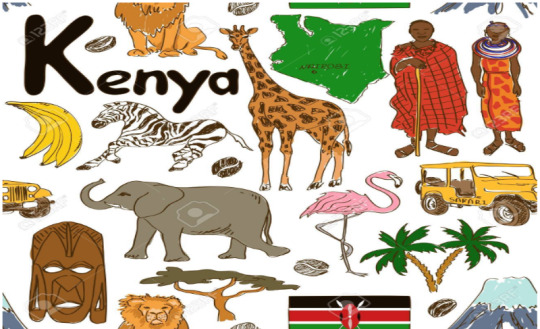
11 Premier Safari Destinations to Visit in Kenya
Offer an unparalleled adventure for travelers seeking to experience the continent's stunning wildlife and landscapes. Kenya is renowned for its world-famous Maasai Mara National Reserve, where visitors can witness the awe-inspiring Great Migration, one of nature's most incredible spectacles. Whether you prefer luxurious lodges or rustic camping under the stars, safari in Kenya cater to all tastes, and offer a truly magical experience. Offering the opportunity to connect with the rich cultural heritage of communities like the Samburu, who warmly welcome visitors and share their traditions. From thrilling game drives to serene hot air balloon rides over the savannah, these safaris promise unforgettable moments.

Where can you find the best wildlife safaris?
It’s time to end the confusion and start the journey on a real adventure. Kenya is the ultimate destination for having an unforgettable safari experience. From the iconic Big Five to lesser-known hidden gems, Kenya’s safari destinations will provide memories that will last forever.
11 Unmissable Safari Destinations to Explore in Kenya
1. Exploring the Wonders of Masai Mara National Reserve

The Masai Mara, located in southwestern Kenya along the border of Tanzania’s Serengeti National Park, is Kenya’s top safari destination. It offers incredible wildlife experiences, from sightings of majestic big cats, elephants, rhinos, and buffalo to the world-famous Wildebeest Migration. Each year, from July to October, millions of wildebeest and other grazers make a daring crossing of the Mara River from the Serengeti in search of greener pastures, making it one of the most thrilling spectacles in the reserve. The Masai Mara should be your top choice for a truly unforgettable safari in Kenya.
Category : Details :
Best Time to Visit - June to October
How to Reach - A 40-minute flight from Nairobi or by road
The table shows data for animal migration numbers from July to October 2023.
Name of Animals : Migratory Number :
Zebras - 4,000,000
Wildebeest - 1,500,000
Gazelles - 3,000,000
Eland - 12,000
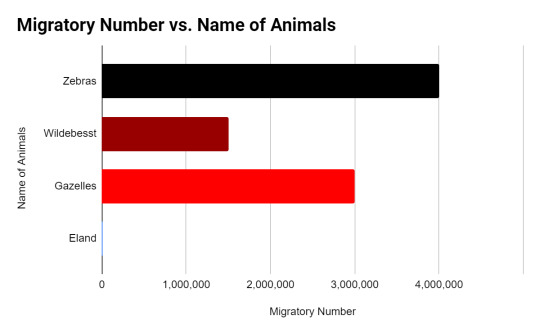
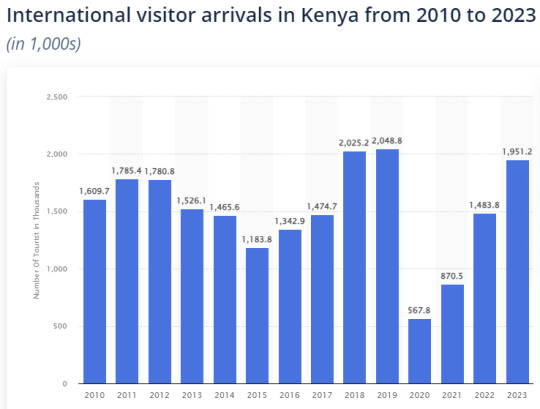
2. Exploring the Wonders of Lake Nakuru National Park
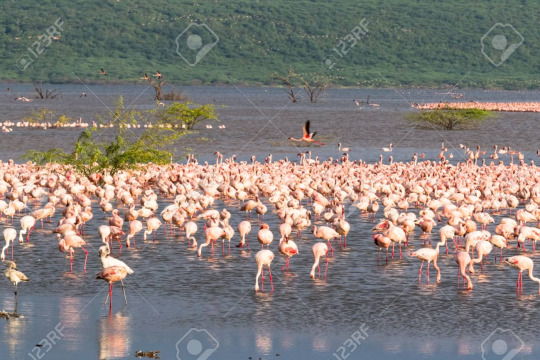
Lake Nakuru Wildlife Haven: Flamingos, Rhinos, and Scenic Beauty
A haven for flamingos and rhinos, this park offers great views for birdwatching and wildlife viewing. Admire the rift valley escarpment, expansive lake, and Euphorbia-dotted savannah. Spot lions, leopards, impalas, antelopes, bushbucks, and baboons. Enjoy camping, lodges, and delicious cuisine.
Although flamingo and pelican numbers have declined, Lake Nakuru remains a rhino sanctuary and a hotspot for birdlife. Explore the forested Flamingo Hill for lion sightings.
This park, 170 kilometres northwest of Nairobi, captures the essence of Africa with its diverse wildlife and breathtaking landscapes.
Category: Details:
Best Time to Visit - All year long
How to Reach - 3 hour drive from Nairobi
Type Of Rhinos: Population:
White Rhinos - 120
Black Rhinos - 30
Total - 150
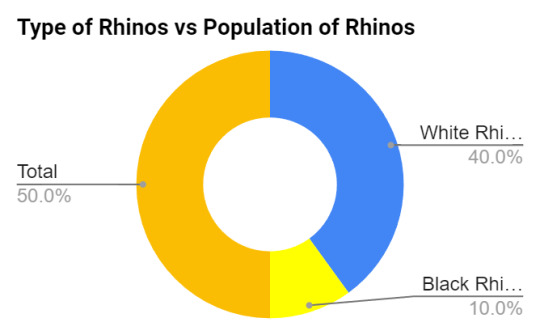
3. Discover the Wonders of Samburu National Reserve

The Samburu National Park takes its name from the Samburu tribe, who have lived in this region for many generations. Though smaller in size when compared to famous parks like the Masai Mara, the Samburu National Reserve is teeming with wildlife.
Category: Details:
Best Time to Visit - June to October
How to Reach - Daily flights from Nairobi or a full-day drive
4. Exploring the Wonders of Mount Kenya National Park

Known for its amazing landscapes, incredible biodiversity, and unique wildlife, Mount Kenya National Park is considered one of Kenya’s most extraordinary parks. It is Africa's second-highest mountain, only surpassed by Kilimanjaro, with a summit elevation of 5,200m above sea level. Mount Kenya National Park's centre location is significant not only as a natural phenomenon but also culturally and historically significant.
a. Discover the Natural Wonders of Mount Kenya National Park: Wildlife and Scenic Views
Mount Kenya National Park is located on Mount Kenya, the highest mountain in Kenya and the second-highest in Africa. The park has a magnificent view of Mount Kenya in the background and its surrounding scenery, which features bamboo and African rosewood forests. Visitors may encounter diverse wildlife such as elephants, leopards, duikers, elands, waterbucks, and giant forest hogs.
b. Explore the Rich Biodiversity and Birdlife of Mount Kenya National Park
Bird lovers will be thrilled to discover over 130 recorded bird species within the park. A safari here provides hiking, sightseeing, nature walks, game drives, and birdwatching opportunities.
c. Experience the Rare Landscapes Of Mount Kenya
The park is home to many rare and unique flora and fauna, including majestic elephants, elegant giraffes, elusive leopards, and playful chimpanzees. The park’s landscapes are equally stunning, from the rugged peaks of Mount Kenya to the gentle hills, grasslands, and valleys at lower altitudes. If you're planning a visit to Kenya, be sure to take the opportunity to experience the stunning beauty of Mount Kenya National Park!
Category: Details:
Best Time to Visit - June to September.
How to Reach - The closest airport to Mount Kenya National Park is Nairobi Wilson (WIL).
5. Discover the Wonders of Nairobi National Park
(Female lion walking in a grassy field during the daytime in Nairobi National Park)

a. Encounter Urban WildLife At Nairobi National Park
A city-centre oasis located in the southern part of the city, this park offers thrilling game drives and peaceful safari walks. Spot buffalos, lions, gazelles, zebras, giraffes, leopards, warthogs.
The park is known for its diversified terrain, exclusive wildlife, and impressive views. The park is spread over an area of 117 acres. It’s the perfect place to spot the Big Five, with over 300 bird species. Explore its open savannahs, dense forests, and water bodies. Discover historical sites like the Nairobi National Museum and Nairobi Animal Village.
The park is a must-visit place for wildlife explorers seeking an unforgettable adventure.
Category: Details:
Time to Visit - The dry season is ideal for wildlife viewing (July- March)
How to Reach - The distance from Nairobi Airport (NBO) to Nairobi National Park is 15 km by road.
6. Exploring the Beauty of Amboseli National Park

a. Amboseli National Park The Territory of Elephants
Amboseli National Park, commonly called “Territory For Elephants”, is a famous safari destination in Kenya. Located in the southern region of the country. The park is famous for two reasons: firstly, having the largest herds of elephants, and secondly having a scenic view of Mt. Kilimanjaro.
b. Explore the Diverse Wildlife and Culture in Amboseli Nature Park
The park also got 5 hot spots with habitats that attract visitors, including Lake Amboseli's dry bed, expansive savannahs, dense woodlands, and wetlands fed by sulfur springs. Amboseli Park also provides an opportunity to interact with the Masai people and learn about their cultural practices.
c. Seeing The Serene Beauty Of Amboseli: A Kilimanjaro Sunrise
The main highlight of Amboseli National Park is the stunning view of Mount Kilimanjaro. Early morning people can easily enjoy the morning view of the mountain as the mountain rises from the morning mist, thus offering a breathtaking sight. While admiring this natural wonder, visitors may also encounter some of the giant tusked elephants grazing peacefully at the foot of the mountain. The park is home to 370 bird species and renowned African animals like zebras, wildebeest, lions, cheetahs, giraffes, buffaloes, warthogs, impalas, jackals, and leopards.
Category: Details:
Best Time to Visit - June to October
How to Reach - A four-hour drive or a short flight from Nairobi.
7. Discover the Wonders of Tsavo National Park

Tsavo National Park, located near Voi town in Taita-Taveta County, is one of Kenya's oldest and largest national parks, covering 13,747 square kilometres. It is divided into parts: Tsavo East and Tsavo West.
a. Tsavo East
Tsavo East is known for the Big Four (elephant, lion, leopard, and buffalo). The park is known for spotting elephants, and you’ll commonly find them bathing in red soil for their reddish appearance. Tsavo is also eminently known for its diversified wildlife species, including rhinos, buffaloes, lions, leopards, hippos, crocodiles, waterbucks, oryxes, gerenuks, lesser kudus, cheetahs, giraffes, vervet monkeys, and over 500 bird species.
b. Tsavo West
Tsavo West offers a more secluded experience with features like Mzima Springs, where you can observe hippos and crocodiles. Tsavo’s vast wilderness provides a unique and remote safari experience, with iconic sights like elephants in the Galana River and the famous baobab and doum palm trees in Tsavo East.
Category: Details:
Best Time to Visit - May to October
How to Reach - You can drive 10 hours from Nairobi or take a convenient charter flight.
8. Exploring Meru National Park

Nestled 350 km east of Nairobi, Meru National Park is a lesser-known yet captivating Kenyan gem. Its expansive, untouched grasslands, rolling hills, and riverine habitats offer a sanctuary for diverse wildlife.
a. Explore Meru’s Rich Biodiversity
Spot reedbucks, gazelles, zebras, giraffes, hartebeests, elephants, lions, leopards, hyenas, cheetahs, hippos, crocodiles, and jackals. Bird enthusiasts can identify over 427 species, while snake lovers may encounter pythons, cobras, puff adders, and more.
b. A New Era in Meru National Park
After a period of decline, Meru has rebounded. The park covers 870 square kilometres for exploring the wilderness, providing excellent views for game viewing. The Big Five, cheetahs, and savannah species are increasingly common. The park's waterways offer opportunities to observe hippos, crocodiles, and the iconic African fish eagle.
Category: Details:
Best Time to Visit - July to October
How to Reach - Drive from Nairobi (NBO) to Meru National Park, which takes approximately 5 hours and 32 minutes.
Must-See Attractions in Meru National Park
Category: Details:
🌿 A Legacy of Conservation - Once home to Joy, George Adamson, and the legendary Elsa the lioness.
🏞️ Scenic Beauty - Enjoy breathtaking views of Mount Kenya.
🏞️Diverse Habitats - Explore rivers, riverine habitats, the Tana
River, and Adamson's Falls.
🐾Wildlife Galore - Spot Grevy's zebras, elephants, eland, bush
pigs, waterbucks, cheetahs, leopards,
reticulated giraffes, hippos, bohor,
reedbucks, hartebeests, pythons, puff
adders, cobras, buffaloes, and more.
🐦Birdwatcher's Paradise - Observe over 427 recorded bird species.
🌳Varied Vegetation - Discover thorny bushland, wooded
grasslands, open grasslands, and dense riverine forests.
9. Discover Aberdare National Park

Geographically located within the Aberdare Mountain ranges the park has rugged terrain consisting of steep, afforested greens, gorges and vast grasslands. Aberdare National Park has diversified wildlife animals: elephants, black rhinos, spotted hyenas, buffaloes, warthogs, leopards, olive baboons, and black and white colobus monkeys. Furthermore, wildlife explorers can get a chance to encounter African golden cats, several cats, civet cats,blue-duikers, Giant Forest hogs and Bongos.
a. Destination For Bird Lovers
Aberdare National Park is also famous for its bird population, with over 250 recorded species. Notable among these are sparrowhawks, sunbirds, plovers, and eagles, along with many others.
Category: Details:
Best Time to Visit - January, February, June, and September
How to Reach - The park is located 180 km north of Nairobi.
10. Exploring Laikipia

Laikipia, located in the northwestern zone of Mount Kenya, is steadily becoming one of Kenya’s top safari destinations. The area is scantily populated; Laikipia has immense landscapes with immaculate wilderness and unmatched views. Laikipia is home to a maximum number of endangered mammals compared to any part of East Africa after the Masai Mara region.
Laikipia also has a dense population of unique species like the Grevy zebra and reticulated giraffe. The main highlight of this region is the rhino population, which accounts 50% of Kenya’s total rhino count.More than 300 rhinos roam freely in the vast plains, Lakipia has turned out to be a safe haven for these endangered animals.
Category: Details:
Best Time to Visit - July to October
How to Reach - Visitors can take private charters from Nairobi or other parks. Alternatively, charter flights are available from Nanyuki, the nearest town.
11. Exploring the Kenyan Coastline

a. Sun, Sea And Safari: The Kenyan Coastline
Kenya’s coastline is a popular safari destination, featuring beautiful beaches and tropical waters protected by a coral reef near Mombasa. On this coastal paradise, travellers can do various activities, such as snorkelling, fishing, swimming, scuba diving, and kite surfing, making it a popular choice for families, holidaymakers, adventure enthusiasts, and honeymooners. The Kenyan coastline is the perfect destination for having a remarkable safari experience in East Africa combining safari experience.
b. White Sands And Blue Waters: Diani Beach
One of the main attractions along the beach is Diani Beach, located about 19 kilometers south of Fort Jesus on safaris from Mombasa. Diani is famous for its white, pristine sandy beaches, as well as the fascinating Wasini Island and Wasini Marine National Park to the south. Additionally, Diani is one of Africa's top snorkeling destinations, offering an exceptional underwater experience.
Category: Details:
Best Time to Visit - October to January
Frequently Asked Question
Can I combine a beach holiday with a safari in Kenya?
Kenya offers a unique opportunity to combine a beach holiday with a safari in Kenya easily. The Kenyan coastline offers beautiful beaches and a variety of water activities.
How can a traveller have a cultural experience in Kenya?
The interaction with Maasai communities to learn about their traditions and customs can provide a cultural experience to the traveller by visiting historical sites.
a. What is the best way to spot wildlife on a safari in Kenya?
Be patient, quiet, and observant. Early morning and late afternoon are often the best times for wildlife sightings.
b. What should I pack for a safari in Kenya?
Pack comfortable clothing, sturdy shoes, a hat, sunscreen, insect repellent, and binoculars.
c. What is the best way to travel between safari destinations in Kenya?
The most common ways to travel between safari destinations are by road or air. Many safari lodges offer internal flights or transfers.
d. Are there any family-friendly safari destinations in Kenya?
Many safari destinations in Kenya are suitable for families with children. Look for lodges that offer family-friendly activities and amenities.
e. What are some of the cultural experiences I can have in Kenya?
You can interact with Maasai communities, learn about traditional Kenyan customs, and visit historical sites.
#travel#travelling#parks in kenya#kenya#safari in kenya#wildlifeparkinkenya#nationalparksofkenya#safariparksinkenya
0 notes
Text
Is this the Largest Sweet Potato in Kenya? The Inspiring Story of Manoah Kilach's 11-Kilogram Sweet Potato
In the verdant Ngata area of Nakuru County, Manoah Kilach has transformed agricultural practice through meticulous organic farming and technological innovation. A retired educator turned agricultural entrepreneur, Kilach stands as a testament to the potential of modern, sustainable farming techniques. On a sun-drenched Friday morning, Kilach proudly displayed an extraordinary achievement: an…
#agricultural innovation in Kenya#crop diversity in Kenya#crop production in Nakuru#farming education hubs#farmyard manure use#holistic farming approaches#Kabode sweet potato#Kalro farming techniques#Kenspot One#Kenyan agricultural entrepreneurs#large sweet potato yields#local farmer networks#Manoah Kilach#modern farming methods.#Nakuru farming innovations#Ngata sweet potato farming#Organic farming practices#record-breaking sweet potatoes#soil health management#soil nutrient testing#sustainable agriculture#sustainable farming practices#Sweet Potato farming in kenya#sweet potato flour production#sweet potato market in Nairobi#sweet potato nutritional benefits#sweet potato varieties in kenya#technological adoption in farming#value addition in agriculture#value-added agriculture
0 notes
Text
The African continent is fast becoming a global hub for technological innovation. Among the most prominent contributors to this rise are Kenyan technology startups and South African technology startups, which have carved a niche for themselves in sectors ranging from fintech to healthtech, agritech, and beyond. These startups are not only transforming their respective countries but are also having a significant impact on the global tech ecosystem. In this blog, we will explore the innovative solutions driving growth in Kenya and South Africa and discuss why these two nations are at the forefront of Africa's tech revolution.
0 notes
Text
How to Turn Your Rental Payments into Equity in Nairobi

Are you tired of paying rent without building equity in a property? Nairobi's growing real estate market offers innovative solutions to help renters transition into homeowners. With options like rent-to-own agreements and flexible financing, you can convert your monthly rental payments into equity, ultimately owning your dream home.
Whether you're considering an apartment for sale in Kenya in neighborhoods like Syokimau, Lavington, Kilimani, or Westlands, this guide will walk you through the steps to turn your rental payments into a valuable investment.
1. Understanding Rent-to-Own Agreements
Rent-to-own agreements allow you to rent a property while gradually building equity over time. A portion of your monthly rent is allocated towards purchasing the apartment.
How It Works
Lease Agreement: You sign a lease for the apartment with an option to buy at a later date.
Rent Allocation: Part of your rent goes towards the purchase price.
Purchase Execution: At the end of the lease term, you can exercise your option to buy the property.
Benefits of Rent-to-Own
Ideal for buyers who need time to save for a down payment.
You lock in the purchase price, protecting you from market price increases.
Opportunity to build equity while renting.
This option is particularly appealing for apartments in high-demand areas like Westlands and Kilimani, where property prices are steadily rising.
2. Choosing the Right Neighborhood in Nairobi
The location of your future apartment plays a crucial role in maximizing the value of your investment.
Syokimau
Syokimau is an excellent choice for first-time buyers seeking affordability and accessibility. With the Nairobi Expressway and the Standard Gauge Railway (SGR), commuting is easy, making it a hotspot for apartments for sale in Kenya.
Lavington
Lavington offers luxury living in a serene environment, ideal for families and professionals. Its proximity to international schools and shopping malls makes it a premium investment area.
Kilimani
Known for its vibrant urban lifestyle, Kilimani is a favorite among young professionals. Investing in an apartment for sale in Kilimani ensures high rental demand and future appreciation.
Westlands
Westlands is a business and entertainment hub, attracting expatriates and high-income earners. Buying an apartment for sale in Westlands guarantees rental income and long-term value.
3. Partnering with Reputable Real Estate Companies
To successfully turn your rental payments into equity, work with trusted real estate companies that offer flexible options for buyers.
Why Work with Professionals?
Transparency: Understand all terms and conditions of rent-to-own agreements.
Property Selection: Access diverse options, from budget-friendly apartments in Syokimau to luxury units in Lavington.
Legal Guidance: Navigate the legal aspects of transitioning from renter to homeowner.
4. Financing Your Equity-Building Journey
Turning rental payments into equity requires a strategic financial plan. Several financing options can help you make the transition smoothly.
Mortgage Financing
Banks in Kenya offer competitive mortgage rates for apartments in Nairobi. A mortgage enables you to buy out the property at the end of the rent-to-own agreement.
Developer Financing
Many developers in Nairobi provide flexible payment plans, allowing you to pay for the apartment in installments while living in it.
SACCOs and Microfinance
Savings and Credit Cooperative Organizations (SACCOs) offer affordable loan options for members, making it easier to acquire an apartment for sale in Kenya.
5. Calculating Equity Accumulation
Understanding how your rental payments contribute to equity is essential.
Rent Allocation Breakdown
For example, if your monthly rent is KES 50,000 and 30% goes toward equity, KES 15,000 builds up your ownership stake every month. Over a three-year lease, you accumulate KES 540,000 in equity.
Negotiating Terms
Percentage Allocation: Negotiate a higher percentage of rent to be applied towards the purchase price.
Purchase Price: Agree on a fair price upfront to avoid market-driven increases.
6. Evaluating the Property's Value
Before committing to a rent-to-own agreement, ensure the property’s value aligns with your investment goals.
Factors to Consider
Market Trends: Areas like Westlands and Kilimani often see consistent appreciation.
Amenities: Apartments with modern amenities attract higher rental and resale value.
Future Developments: Infrastructure projects like the Nairobi Expressway boost property demand in Syokimau.
Conducting thorough research ensures that your investment in an apartment for sale in Nairobi is worthwhile.
7. Building a Savings Plan
Although rent-to-own agreements allow you to build equity gradually, saving for additional costs is crucial.
What to Save For
Down Payment: Many agreements require an initial deposit.
Closing Costs: Legal fees, taxes, and other charges at the time of purchase.
Renovations: Upgrade the apartment to increase its value or match your preferences.
Creating a monthly savings plan ensures you’re financially prepared when it’s time to finalize the purchase.
8. Understanding the Risks
While turning rental payments into equity is a smart strategy, it’s essential to be aware of potential risks.
Key Risks
Default: Missing rent payments could jeopardize your equity.
Market Changes: Property prices may decrease, affecting the value of your investment.
Agreement Termination: Ensure the agreement allows for flexibility in case of unforeseen circumstances.
Mitigating these risks involves thorough contract review and financial planning.
9. Advantages of Building Equity Through Rentals
Converting rental payments into equity offers numerous benefits for aspiring homeowners.
Why It’s Worth It
Ownership Mindset: You’re not just paying rent; you’re investing in your future.
Reduced Financial Pressure: Spreads the cost of buying a property over several years.
Increased Security: Gain stability and control over your living situation.
For those considering an apartment for sale in Lavington, Kilimani, or Syokimau, this approach provides a practical pathway to homeownership.
10. Success Stories in Nairobi
Many Nairobi residents have successfully transitioned from renters to homeowners using this method.
Case Study: Westlands Investor
A young professional rented an apartment in Westlands for three years under a rent-to-own agreement. By the end of the lease, they had accumulated enough equity to secure a mortgage, becoming a proud homeowner in one of Nairobi’s prime locations.
Case Study: Family in Syokimau
A family in Syokimau used developer financing to gradually pay for their apartment. The affordable terms allowed them to balance other financial obligations while building equity.
Conclusion
Turning your rental payments into equity is an excellent strategy to secure homeownership in Nairobi. With the city’s diverse real estate options, including apartments for sale in Lavington, Kilimani, Westlands, and Syokimau, you can find a property that suits your needs and budget.
By understanding rent-to-own agreements, partnering with reputable real estate companies, and creating a solid financial plan, you can transition from renter to homeowner with ease. Start your journey today and invest in your future with an apartment for sale in Nairobi. Ready to own your dream property? RentScore's expert realtors make it easy! Contact us today at 0743 466 209 / 0757 488 833 or email [email protected] to begin your homeownership journey.
0 notes
Text
Mount Kenya University (MKU) – An International Destination for Higher Education

Mount Kenya University (MKU) stands as a beacon of excellence in higher Education, attracting students from across the globe. Founded with a mission to empower learners, MKU has rapidly grown to become one of Africa’s most prestigious universities. Located in Kenya, the university offers a holistic educational experience that balances academic rigor with personal growth. Its campuses are strategically placed to ensure accessibility, with the main campus located in Thika, just outside Nairobi.
MKU is renowned for its innovative teaching methods, diverse programs, and commitment to producing globally competitive graduates. From its modest beginnings, MKU has evolved into a hub for research, innovation, and academic excellence.
Vision and Mission The vision of MKU is to be a leading global center of excellence in training, research, and innovation. Its mission underscores its dedication to providing quality education, fostering sustainable development, and equipping students with the skills needed for a dynamic world. This dedication resonates with students seeking a world-class education in an inclusive environment.
Why Choose MKU for Higher Education?
Commitment to Academic Excellence MKU prides itself on its high academic standards. The university employs a team of qualified lecturers and professors who bring a wealth of experience and expertise to the classroom. With a focus on interactive learning and real-world applications, students are equipped with practical skills that enhance employability.
International Student Community MKU attracts students from over 40 countries, fostering a rich multicultural environment. International students are warmly welcomed and supported through tailored services such as orientation programs, cultural exchange events, and mentorship opportunities. This vibrant community ensures a global perspective, enriching the educational journey for all.
Diverse Academic Programs Offered at MKU
Undergraduate Programs MKU offers a wide range of undergraduate programs tailored to meet the needs of various industries. From business and technology to healthcare and arts, students can pursue their passions and develop expertise in their chosen fields. These programs are designed to prepare students for leadership roles and entrepreneurial ventures.
Postgraduate and Doctoral Programs For those looking to advance their education, MKU provides comprehensive postgraduate and doctoral programs. With state-of-the-art research facilities and experienced supervisors, students engage in groundbreaking research that contributes to solving global challenges.
Short Courses and Professional Training MKU also offers short courses and professional training programs to enhance skills and improve career prospects. These programs are ideal for working professionals seeking to upskill or individuals exploring new fields.
State-of-the-Art Facilities and Infrastructure
Modern Campuses and Learning Centers MKU’s campuses are equipped with modern classrooms, libraries, and recreational facilities. The university prioritizes creating a conducive learning environment, ensuring students have access to the best resources.
Advanced Research and Innovation Hubs MKU houses cutting-edge research centers that encourage innovation and creativity. These hubs support students and faculty in conducting transformative research in fields like biotechnology, IT, and environmental science.
Digital Learning Platforms MKU has embraced technology to facilitate education through its robust digital learning platforms. These platforms offer flexibility and convenience, making it easier for international students to access learning materials and attend classes virtually.
Global Partnerships and Collaborations
Academic Exchange Programs Mount Kenya University has established strong partnerships with renowned institutions worldwide, enabling academic exchange programs for both students and faculty. These collaborations offer students the chance to study abroad, gain exposure to diverse cultures, and enhance their global perspectives. Faculty members also benefit from exchange opportunities that encourage shared knowledge and innovative teaching practices.
International Accreditations MKU is recognized by various international accrediting bodies, cementing its reputation as a trusted institution for higher education. These accreditations ensure that MKU's academic standards align with global benchmarks, providing students with degrees that are highly respected worldwide.
Research Collaborations Through joint research projects with international universities and organizations, MKU is at the forefront of solving global challenges. These collaborations not only enrich academic research but also provide students with opportunities to participate in impactful projects, enhancing their academic and professional profiles.
Affordable Tuition and Scholarships
Flexible Payment Plans MKU is committed to making education accessible to all, offering flexible tuition payment plans to ease the financial burden on students. These plans are tailored to suit diverse financial capabilities, ensuring that every student can focus on their studies without undue stress.
Scholarships for Merit and Need-Based Students The university provides a variety of scholarships aimed at supporting exceptional students and those in need. Merit-based scholarships reward academic excellence, while need-based scholarships ensure that financial constraints do not hinder deserving students from pursuing higher education.
Support for International Students MKU understands the unique financial challenges faced by international students. As such, the university offers special support programs and guidance to help international students manage tuition costs and secure funding opportunities.
Student Support Services at MKU
Career Guidance and Placement Services MKU takes pride in preparing students for the job market through dedicated career guidance and placement services. The university collaborates with leading companies to facilitate internships, job placements, and career fairs. These services ensure students transition smoothly from academics to professional life.
Counseling and Wellness Programs Recognizing the importance of mental health, MKU provides robust counseling and wellness programs. Professional counselors are available to assist students in navigating personal and academic challenges, fostering a supportive and healthy learning environment.
On-Campus Housing and Accommodation For students seeking convenience, MKU offers on-campus housing options that are safe, affordable, and well-maintained. The accommodations are equipped with modern amenities, ensuring students have a comfortable living experience while pursuing their studies.
Campus Life at MKU
Multicultural Environment Life at MKU is enriched by its vibrant and diverse student body. Students from different backgrounds come together, creating a multicultural environment that celebrates inclusivity. This cultural exchange fosters mutual respect and understanding, preparing students for a globalized world.
Clubs, Societies, and Extracurricular Activities MKU encourages students to engage in clubs and societies that align with their interests, from academic groups to sports and arts. These extracurricular activities provide opportunities for personal development, networking, and relaxation outside the classroom.
Safety and Security Measures Student safety is a top priority at MKU. The university has implemented comprehensive security measures, including 24/7 surveillance, secure access to facilities, and a dedicated security team, ensuring a safe learning and living environment for everyone.
The Role of MKU in Shaping Future Leaders
Alumni Success Stories MKU has produced numerous alumni who have gone on to achieve great success in various fields. These graduates serve as a testament to the university’s commitment to nurturing future leaders who make significant contributions to society.
Leadership Training and Development The university integrates leadership training into its curriculum, encouraging students to develop critical thinking, decision-making, and interpersonal skills. Through workshops, seminars, and mentorship programs, MKU equips students to lead with confidence and integrity.
Environmental Sustainability at MKU
Green Initiatives and Programs MKU actively promotes sustainability through its green initiatives, such as energy-efficient buildings, waste management programs, and campus-wide recycling efforts. These initiatives align with the university’s commitment to environmental conservation and sustainable development.
Community Outreach Efforts MKU engages in various community outreach programs to address environmental and social issues. Students and faculty collaborate on projects that promote environmental awareness, sustainable agriculture, and eco-friendly practices within local communities.
Testimonials from International Students
Stories of Academic Success International students at Mount Kenya University often share inspiring stories of academic success. Many credit the university’s supportive learning environment, dedicated faculty, and access to state-of-the-art resources as key factors in their achievements. From securing top positions in multinational companies to pursuing groundbreaking research, these stories highlight MKU’s transformative impact on students’ lives.
Cultural Integration Experiences Adjusting to a new country and culture can be challenging, but MKU makes this transition smooth for international students. Orientation programs, language support, and cultural exchange events help students feel at home. Testimonials frequently emphasize how the university fosters a sense of belonging and provides ample opportunities for cultural immersion.
How to Apply to MKU
Application Process for Local Students Local students can apply to MKU through an easy-to-navigate online application portal or by visiting the admissions office on campus. The process involves submitting academic transcripts, identification documents, and application fees. MKU also provides guidance on program selection to help applicants make informed decisions.
International Admission Requirements MKU welcomes international applicants, offering detailed guidelines to simplify the admission process. Prospective students must provide proof of academic qualifications, English proficiency, and a valid passport. The admissions office is always ready to assist with queries and ensure applicants meet the necessary criteria.
Visa and Immigration Support MKU offers extensive support to international students in obtaining student visas and meeting immigration requirements. The university collaborates with government agencies to ensure a smooth process, reducing the stress of relocating to Kenya for education.
Future Plans and Expansion of MKU
Upcoming Campuses and Facilities As part of its vision to expand its global footprint, MKU has plans to establish additional campuses both locally and internationally. These facilities will feature cutting-edge technology and infrastructure, ensuring students continue to receive a top-tier education.
Vision for Global Impact MKU is dedicated to fostering innovation and contributing to global development. Through strategic partnerships and continuous improvement of its academic offerings, the university aims to solidify its position as a leading destination for higher education worldwide.
Mount Kenya University is more than an academic institution; it’s a gateway to personal and professional growth. With a commitment to excellence, inclusivity, and innovation, MKU continues to attract students from across the globe. Whether you’re seeking academic advancement, leadership opportunities, or a vibrant multicultural experience, MKU offers all that and more. Join the thousands of students who have chosen MKU as their destination for higher education and take the first step towards a brighter future.
Contacts: P. O. Box 342-01000, Thika, Kenya Email: [email protected] Tel: +254 20 2878 000 Cell: +254 709 153 000 WhatsApp: +254 722 999 399 Social Media: https://www.facebook.com/mountkenyauniversity https://www.youtube.com/channel/UCGOvkcfcDRGkC6rGGttoocA https://twitter.com/MountKenyaUni
1 note
·
View note
Text
Africa: A Continent of Rich Heritage, Innovation, and Opportunity
Africa, often referred to as the cradle of humanity, is a continent of breathtaking landscapes, diverse cultures, and immense potential. With 54 countries, over 1.4 billion people, and thousands of languages, Africa is a land of contrasts—home to ancient traditions and rapidly growing economies.
A Rich Cultural Heritage
Africa’s cultural diversity is one of its greatest strengths. From the pyramids of Egypt to the rock-hewn churches of Ethiopia and the ancient city of Timbuktu, the continent is filled with historical marvels. Traditional music, dance, and storytelling continue to play a significant role in African societies, preserving history and passing down wisdom through generations.
The continent is also a global fashion powerhouse, with designers from Nigeria, South Africa, and Ghana influencing trends worldwide. African cuisine, rich in flavors and spices, is gaining popularity across the globe, with dishes like jollof rice, injera, and bobotie becoming international favorites.
Economic Growth and Innovation
Despite challenges, Africa is one of the fastest-growing regions in the world. The rise of technology hubs like Silicon Savannah (Kenya), Yabacon Valley (Nigeria), and Rwanda’s innovation city is transforming the continent. Mobile money services like M-Pesa have revolutionized banking, enabling millions to access financial services without traditional banks.
Agriculture remains the backbone of many African economies, but advancements in agribusiness and green energy are changing the landscape. Countries like Morocco and South Africa are investing heavily in renewable energy, aiming to become leaders in sustainability.
Africa’s Natural Beauty and Tourism
Africa’s wildlife and natural beauty attract millions of tourists every year. From the Serengeti Migration in Tanzania to the majestic Victoria Falls, Africa offers some of the most stunning landscapes in the world. Safaris in Kenya, Botswana, and South Africa provide visitors with a chance to see the “Big Five” (lion, leopard, elephant, buffalo, and rhinoceros) in their natural habitats.
Eco-tourism is also on the rise, with efforts to conserve wildlife and promote sustainable travel. Countries like Rwanda and Uganda have protected mountain gorillas, offering once-in-a-lifetime experiences for nature lovers.
Challenges and the Road Ahead
Africa faces challenges such as poverty, political instability, and climate change. However, the resilience of its people is remarkable. Youth-led initiatives in entrepreneurship, education, and technology are paving the way for a brighter future.
With a young and dynamic population, vast natural resources, and increasing global investment, Africa is on the rise. The future is bright, and the world is beginning to recognize Africa not just for its past but for the potential it holds.
Conclusion
Africa is more than just a continent; it is a story of resilience, diversity, and progress. As the world turns its attention to the next frontier of economic growth and cultural influence, Africa stands ready to lead with its rich heritage, innovation, and boundless opportunities.😅
#investment#tourist#forestcore#100 days of productivity#3d printing#1950s#70s#911 abc#80s#60s#yellowjackets#usaclothing#academia#mutual aid
1 note
·
View note